Late last month, UVA Today published a story on “must-read books for the summer” recommended by UVA Library staff. The suggestions ranged from a book about how Taylor Swift reinvented pop music (by a UVA alumnus) to Jane Austen’s arguably least-known work. That piece stayed on UVA Today’s list of “most popular” stories for two weeks and was even shared by UVA President Jim Ryan on Instagram.
To read more about these books, click the image below to access the UVA Today story.
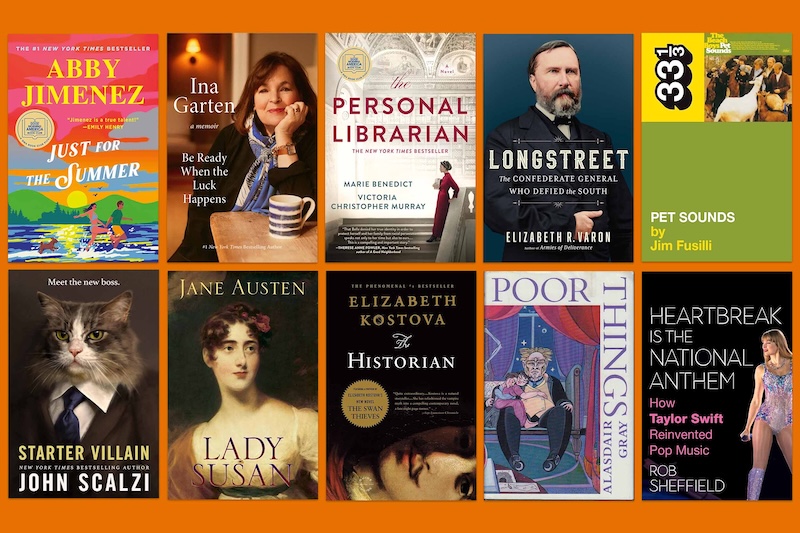
But wait, there’s more!
We’re thrilled that the UVA community has so much interest in summer reading. For those looking for additional recommendations, we’re providing a list of books suggested by Library staff that didn’t make it into the UVA Today story. Check out these titles below!
Recommended Kelly Graham, Director of Development
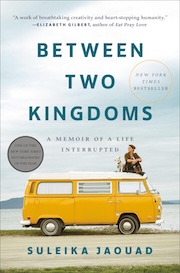 “Between Two Kingdoms: A Memoir of a Life Interrupted” by Suleika Jaouad (Random House, 2021)
“Between Two Kingdoms: A Memoir of a Life Interrupted” by Suleika Jaouad (Random House, 2021)
I love memoirs, and this is the best memoir I have ever read. I recommend it to anyone who will listen. Moving, transformative, and so, so beautifully written. Bring tissues!
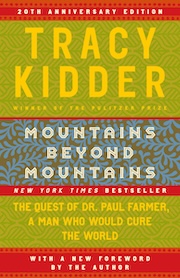 “Mountains Beyond Mountains” by Tracy Kidder (Random House, 2023)
“Mountains Beyond Mountains” by Tracy Kidder (Random House, 2023)
Dr. Paul Farmer’s story is one that I think about regularly. I found this biography to be a profound call to action to follow his philosophy that “the only real nation is humanity.” His impact is a testament to the power of individual action.
Recommended by Dan Ray, Music Metadata Librarian
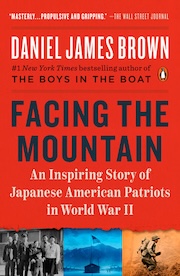 “Facing the Mountain: An Inspiring Story of Japanese American Patriots in World War II” by Daniel James Brown (Viking, 2021)
“Facing the Mountain: An Inspiring Story of Japanese American Patriots in World War II” by Daniel James Brown (Viking, 2021)
This book describes the heroic exploits of the soldiers, as well as the struggles of the individuals and families who dealt with forced relocation and internment by the U.S. government. It is simultaneously deeply moving and extremely infuriating.
Recommended by Nicholas Cummins, Research Librarian for Economics & Commerce
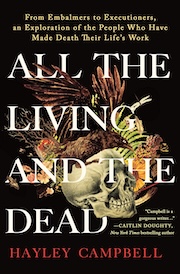 “All the Living and the Dead: From Embalmers to Executioners, an Exploration of the People Who Have Made Death Their Life's Work” by Hayley Campbell (St. Martin's Press, 2022)
“All the Living and the Dead: From Embalmers to Executioners, an Exploration of the People Who Have Made Death Their Life's Work” by Hayley Campbell (St. Martin's Press, 2022)
Though not everyone’s idea of a light beach read, I found Campbell’s empathetic approach to this morbid topic refreshing in its candor. Having previously worked in a position that occasionally required processing images of crime scenes and autopsies, I found a certain level of catharsis in learning about other people’s experiences with similarly dark yet necessary tasks. Modern American society shies away from honest, open discussions of death, and Campbell’s grimly fascinating book serves as an important antidote.
Recommended by Bret Heddleston, Print Periodicals Specialist
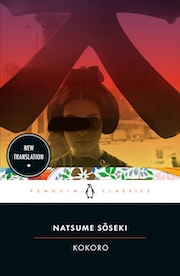 “Kokoro” by Natsume Soseki (Penguin Books, 2010)
“Kokoro” by Natsume Soseki (Penguin Books, 2010)
You can translate the name of this greatest modern Japanese novel as heart, implying that the hidden heart of the story is concealed in the past of one of its main characters—an older man called Sensei (teacher), who, true to his name, will reveal it to a younger man in time. I found the lead-up to these revelations a little slow, but I advise persistence: the last section, like a whirlpool, draws you faster as you near the center. You may wonder after reading “Kokoro” if heartless or heartbreak would have been a more suitable title.
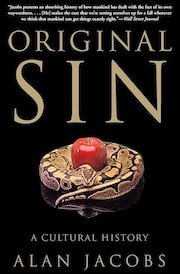 “Original Sin: A Cultural History” by Alan Jacobs (HarperOne, 2009)
“Original Sin: A Cultural History” by Alan Jacobs (HarperOne, 2009)
In college, Dr. Jacobs was our favorite professor because of his vivid grasp of the personal and social consequences of ideas. Jacobs is a Christian, but somehow both adherents and antagonists to his faith will be delighted and aghast at his book. This must be because it’s so clear, honest, and unbiased a telling of episodes in the history of the adored and hated doctrine of Original Sin.
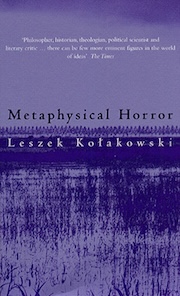 “Metaphysical Horror” by Leszek Kolakowski (University of Chicago Press, 2001)
“Metaphysical Horror” by Leszek Kolakowski (University of Chicago Press, 2001)
If the history of philosophy is a horror story, then this is the book that tells it. A brief and clear work of colossal erudition and difficult thought, “Metaphysical Horror” is intellectual historian Leszek Kolakowski’s account of the history of two philosophical concepts: the Absolute (or God) and the Ego (or Self); how philosophers discovered that both were necessary, but that both were also irresolvably contradictory. Presumably, no reader will be pleased to learn that God’s existence (or ours) is both logically necessary and logically contradictory, so we will have to scratch our heads and think harder about which of Kolakowski’s claims we accept, lest we succumb to metaphysical horror.
We hope you find something enticing among these recommendations. For additional suggestions, click on the “reading list” tag on our blog. Stop by any UVA Library location this summer to check out books and beat the heat. Happy reading!
